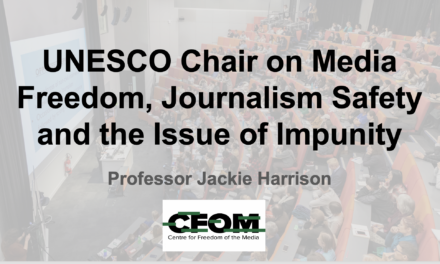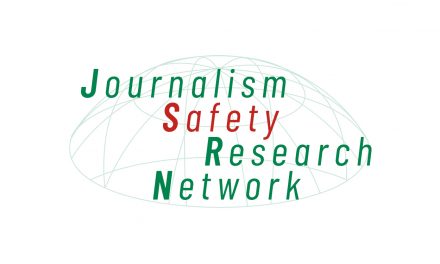Council of Europe ministers, at a conference on media issues in Reykjavik on May 29, passed a Resolution which for the first time commits them to review national anti-terrorism laws and practices on a regular basis to ensure that they are consistent with Council of Europe standards guaranteeing the right to freedom of expression and information. The ministers acknowledged concerns that some anti-terrorism laws are too broad and lack guarantees to stop official abuses. Russia, alone among the 47 member states, abstained from the pledge to review its own conduct in this area.
The relevant part of the text is as follows:-
[We] Resolve to review our national legislation and/or practice on a regular basis to ensure that any impact of anti-terrorism measures on the right to freedom of expression and information is consistent with Council of Europe standards, with particular emphasis on the case law of the European Court of Human Rights.
The Association of European Journalists (AEJ) tabled the amendment which led to the acceptance of this wording by ministers responsible for media affairs or their deputies. William Horsley, who represents the AEJ in the Council of Europe, is the international director of CFOM. He explains the next steps in the process of reviewing anti-terrorism laws in Council of Europe member states.
Within weeks, Council of Europe foreign ministers will meet to adopt the texts adopted by specialist ministers in Reykjavik; they may pass further comments, and must set terms of reference for work to be done by officials in standard-setting committees in the coming year.
In autumn 2009 the Parliamentary Assembly of the Council of Europe will receive a report including recommendations for a possible new mechanism for monitoring violations of Article 10 of the European Convention on Human rights, which privides for the right to freedom of expression but also sets out restrictions on that right related to national security and the prevention of disorder or crime.
At national level the governments and parliaments of the 46 member states may each decide on their own method of conducting the review of anti-terrorism laws and practices.
A Statement by 40 media and civil society organisations urges all European governments to conduct urgent and thorough reviews of anti-terrorism measures. The Forum, including the International Federation of Journalists, Article XIX, the Media Legal Defence Initiative and the AEJ, met in Reykjavik on May 26 at the invitation of the Council of Europe and the Dutch and Icelandic governments. Lawyers, journalists and other experts presented evidence that governments across Europe have enacted an array of laws or measures since 2001 which limit or threaten legitimate access to information, freedom of expression and the confidentiality of news sources for journalists and news media.
Read David Banisar’s 2008 report for the Council of Europe “Speaking of Terror”, which documents the use of anti-terrorism and state security laws across Europe and their damaging impact on freedom of expression in the media.



